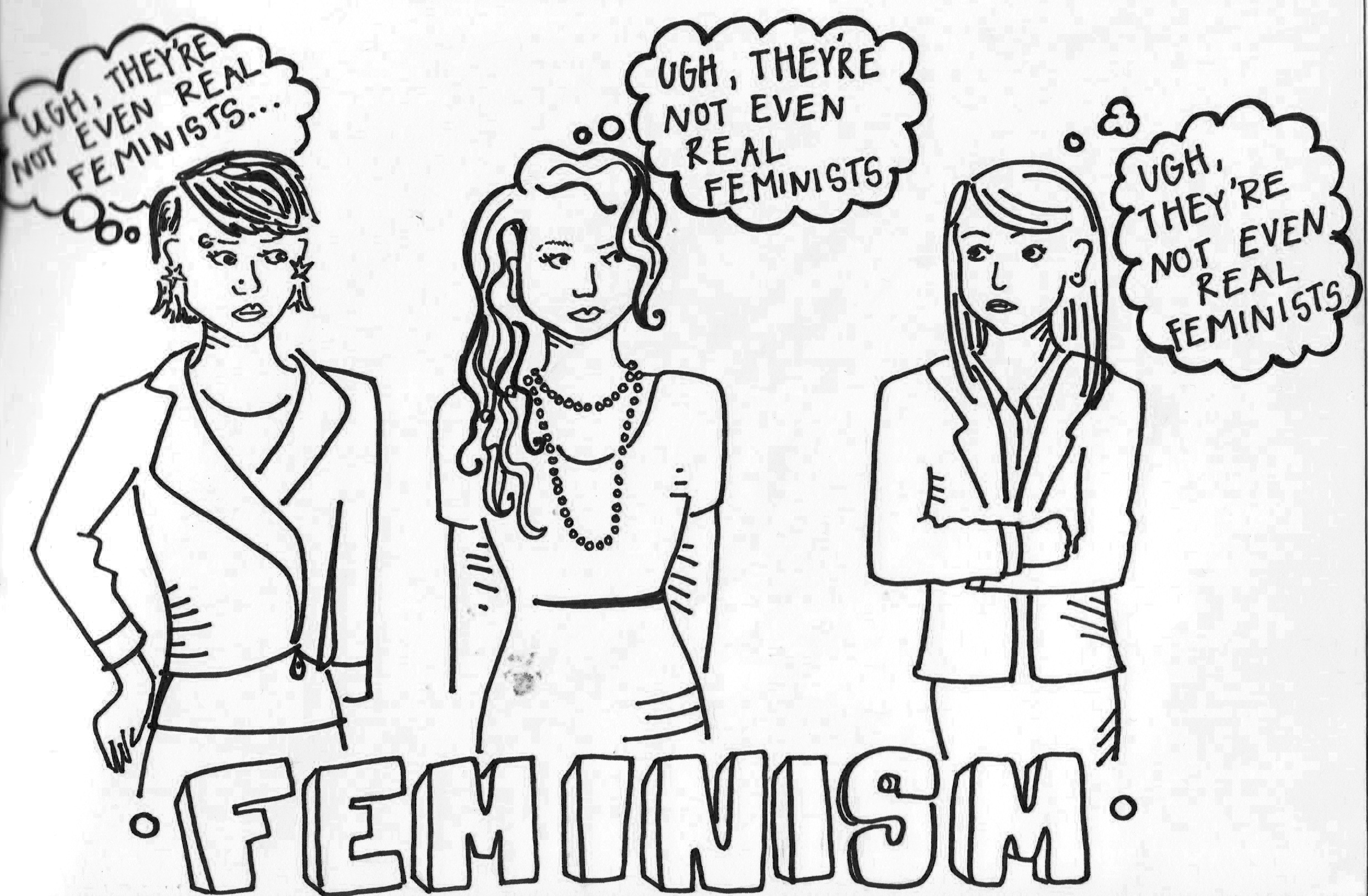Feminism is a dirty word. It accuses and it undermines. It passes judgment. It makes me squirm when I hear it. Frankly, it’s a bitch.
I do not feel comfortable identifying myself as a feminist because my generation has a tendency to call practically anything feminism. A “feminist” initiative could mean anything from raising awareness about domestic violence to The Vagina Monologues to a networking group such as Georgetown University Women in Leadership posting a picture of Tina Fey in a suit on their Facebook page. These organizations span virtually the entire spectrum of the female experience, but I hesitate to describe most of them as feminism.
Being a woman on this campus is a strange phenomenon. As a female student at Georgetown, I have access to virtually unlimited academic and professional resources, yet I continue to deal with stereotyping and discrimination on almost a daily basis. My very presence here empowers me to pursue virtually any goal I choose, but I will still fall victim to male privilege at some point in my life, if not here then wherever life takes me outside the front gates. Feminism still plays a much-needed role in our society, even among a demographic as privileged as female Georgetown students. However, what passes as feminism often fails to support women in the ways they need it to when facing the challenges of womanhood in the 21st century.
When I declare myself a feminist it is as though I have backed myself into a corner. In mainstream society identifying yourself as a feminist has become a social obligation. But as soon as the words “I am a feminist” escape my lips, I brace myself for eye rolls and silent judgment because to the average listener the idea of feminism lumps together memories of power suits with shoulder pads and listicles with titles like “10 Things invented for Single Women.” When thought of in this way, feminism at its best is a useless jumble of incoherent rhetoric. At its worst, it is a laughingstock that undermines the very cause it advocates for.
That is not to say feminism should be a homogenous entity. It is impossible to define feminism simply because no two women are the same. The word feminism has as many definitions as there are women in the world. The only word that ought to describe the ideal female experience is choice. The right of a woman to choose her career, to choose her sexuality, to choose her partner, and to define for herself what beauty means all play a hand in shaping the female form that has befuddled both men and women for centuries.
The essential role individual choice plays in the definition of feminism highly complicates discerning between feminism and rhetoric. It is easy to say what feminism isn’t. But because each individual woman has the responsibility to decide what feminism means to her, merging these unique perspectives into an all-encompassing social movement will inevitably end with the same frayed patchwork quilt we have now.
Discernment should be the golden standard of feminism in the modern age. Organizations such as Georgetown University Women in Leadership, although they would gladly describe themselves as feminist organizations, actually do very little to empower women. Planning events for privileged women to network with other privileged women does not qualify as feminism because it brings nothing new to the conversation.
On the other hand, attempts to discuss new aspects of the female identity such as “Fisting”, a post featured on Feminists-At-Large last month that deflowers myths about the female sexual experience, have a valuable role in the feminist movement because they brave new territory. Even organizations like D.C. Reads that do not specifically target women can still qualify as feminist because they empower girls to overcome educational obstacles and social stigmas without differentiating them from their male peers.
The label “feminist” needs to be earned, not assumed. Feminism should define itself with conversations that put us on edge and make both men and women uncomfortable. The conversations that make us uncomfortable are the conversations that will ultimately create progress because they will keep pushing feminism outside of itself and and bring a fresh perspective to the table.







Is feminism even appropriate in this day and age? What with boys failing catastrophically at school and well behind in tertiary academic achievement, and well in front in all negative social statistics, perhaps ‘feminism’ should be consigned to the dustbin where it belongs. I suggest instead of attacking every male creation and establishment to force them to adopt your ideology, you create your own. Enough bitching and whining, this is too old.
this is stupid, just because you see a few examples of this does not mean it is how it is, feminism is very important, and if your not for it, youre against equality in every social, political and economic stand-point.
http://www.youtube.com/watch?v=AqJAiR000LQ